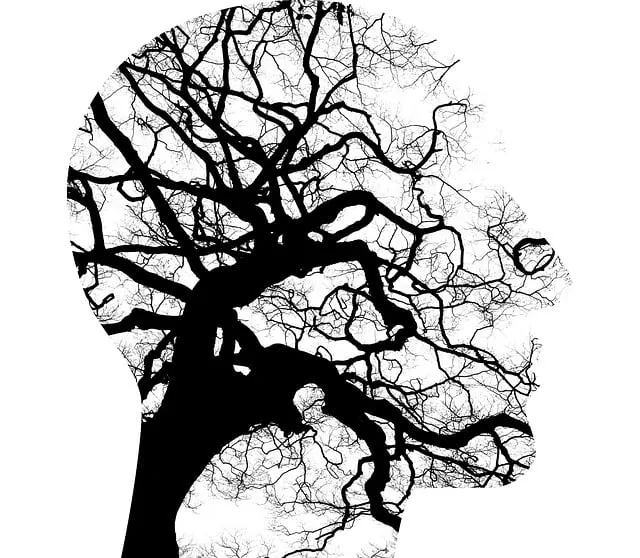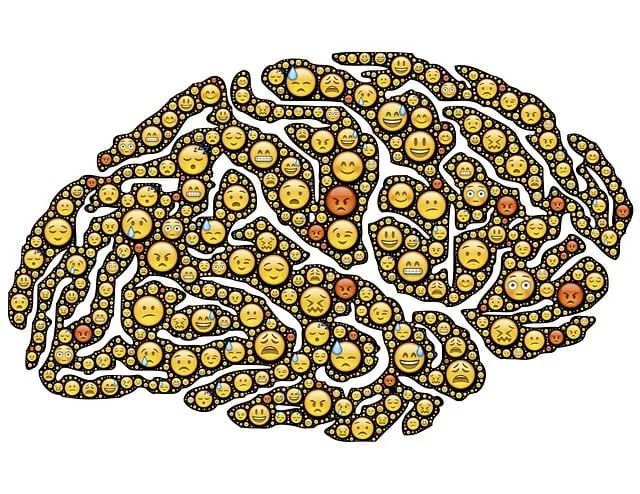Kaiser Permanente, a leading healthcare provider in Lafayette, prioritizes mental wellness through comprehensive programs integrating evidence-based practices like Compassion Cultivation and Self-Awareness Exercises. They evaluate these initiatives using multi-faceted methods including structured interviews and self-report measures to track improvements in symptoms, functioning, and quality of life. Continuous improvement is guided by Cultural Sensitivity in Mental Healthcare Practice and Inner Strength Development, ensuring equitable access and tailored evaluations. Additionally, leveraging technology like podcasts and exploring innovations such as virtual reality and machine learning enriches program offerings and data analysis for targeted interventions, as seen in Kaiser Permanente mental health jobs Lafayette.
Mental wellness program evaluation is paramount in assessing and improving initiatives, especially within renowned healthcare organizations like Kaiser Permanente. This article explores the evaluation methods employed by Kaiser Permanente’s mental wellness programs in Lafayette, highlighting their impact on patient outcomes. We delve into best practices, offering insights for continuous improvement. By examining these strategies, professionals in the field can enhance program effectiveness, ensuring a healthier community, particularly among those seeking mental health jobs in Lafayette.
- Understanding Kaiser Permanente's Mental Wellness Programs and Their Impact
- Evaluation Methods for Measuring Effectiveness in Lafayette
- Best Practices and Future Directions for Continuous Improvement
Understanding Kaiser Permanente's Mental Wellness Programs and Their Impact

Kaiser Permanente, a renowned healthcare organization, places significant emphasis on mental wellness, offering comprehensive programs designed to support and enhance the lives of individuals in their community. These initiatives are particularly evident in locations like Lafayette, where dedicated teams work tirelessly to promote mental health awareness and accessibility. Their approach integrates various evidence-based practices, such as Compassion Cultivation Practices, Self-Awareness Exercises, and Emotional Healing Processes, into treatment plans.
These programs cater to diverse populations, addressing a wide range of mental health concerns. Through structured interventions, Kaiser Permanente aims to foster resilience, improve coping mechanisms, and ultimately, enhance overall well-being. The impact is twofold: not only do individuals benefit from improved mental health outcomes, but the community as a whole becomes more equipped to navigate and support each other’s emotional needs.
Evaluation Methods for Measuring Effectiveness in Lafayette

In Lafayette, evaluating the effectiveness of mental wellness programs is a multifaceted process that goes beyond mere satisfaction surveys. Organizations like Kaiser Permanente, renowned for their mental health jobs in the area, employ a range of assessment tools to gauge progress. These include structured interviews and self-report measures designed to capture changes in symptoms, functioning, and quality of life. For instance, the Mind Over Matter Principles, emphasizing cognitive reframing and problem-solving skills, might be assessed through standardized questionnaires that track improvements in anxiety or depression.
Moreover, empathy building strategies, a cornerstone of many therapeutic approaches, are evaluated by observing client interactions and clinician behavior. Programs focused on enhancing self-esteem, another key component of holistic mental wellness, can measure success by tracking changes in self-assessed worth and personal accomplishments. These evaluation methods not only help identify what works but also inform the continuous improvement of mental health services in Lafayette, ensuring they remain aligned with the evolving needs of the community.
Best Practices and Future Directions for Continuous Improvement

To ensure continuous improvement in mental wellness program evaluations, best practices should be adopted and future directions explored. One key practice is integrating Cultural Sensitivity in Mental Healthcare Practice to cater to the diverse needs of participants from various backgrounds. This involves training evaluators on unconscious biases and cultural competencies, ensuring equitable access to programs, and adapting evaluation methods to respect cultural norms and values.
Additionally, focusing on Inner Strength Development through programming and evaluations can lead to more sustainable outcomes. Encouraging self-reflection, resilience, and personal growth fosters participants’ autonomy and enhances their ability to navigate mental health challenges. For instance, the Mental Wellness Podcast Series Production can be leveraged to share stories of recovery, offer practical tips, and create a supportive community, all while gathering feedback for program enhancements. Future directions may include utilizing technology like virtual reality for immersive evaluations and employing machine learning algorithms to analyze large datasets for targeted interventions.
The evaluation of mental wellness programs, such as those offered by Kaiser Permanente in Lafayette, is vital for ensuring their effectiveness and continuous improvement. By employing robust methods that measure impact and participant satisfaction, organizations like Kaiser Permanente can enhance the well-being of their members. As the demand for mental health services continues to grow, particularly in competitive markets like Lafayette, understanding best practices in program evaluation becomes crucial for attracting and retaining talent in the mental health field (Kaiser Permanente mental health jobs Lafayette). This knowledge ensures that programs remain relevant, accessible, and high-quality, ultimately fostering better outcomes for individuals seeking support.






